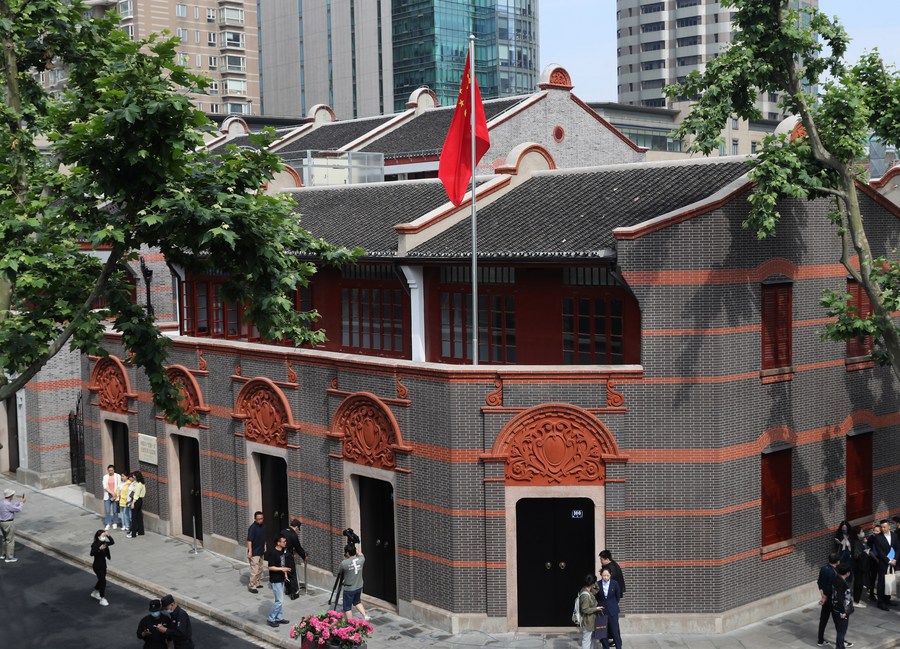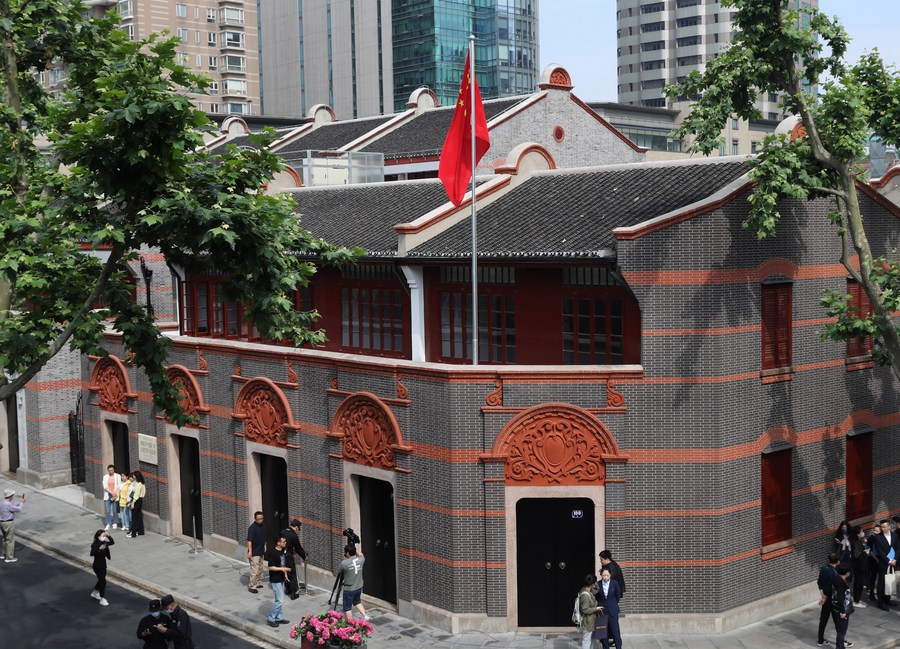
Photo taken on May 21, 2021 shows the building at 76 Xingye Road in east China's Shanghai, which is the site of the first national congress of the Communist Party of China. (Xinhua/Liu Ying)
BEIJING, June 23 -- The two-story brick-and-wood house at 76 Xingye Road in Shanghai looks no different from other buildings in the vicinity. However, a secret meeting held inside the building 100 years ago changed the fate of the world's most populous country.
On July 23, 1921, the first national congress of the Communist Party of China (CPC) was convened in the house. The meeting marked the founding of the CPC -- an epochal event in China's history.
Starting from there, the Party's leadership had moved across China strategically before settling in Beijing in 1949. Today the CPC has grown into the largest political party in the world with over 91 million members, and the country under its leadership has become the world's second-largest economy.
VANGUARD IN OPENING-UP
Located at the estuary of the Yangtze River, Shanghai has been China's commercial center and a base of the country's working class since modern times, featuring openness, diversity and innovation.
After the founding of the People's Republic of China (PRC) in 1949, the city remained the country's economic powerhouse and has become a window of China's proactive integration into the international community.
Since the start of reform and opening-up in late 1970s, many foreign investors have chosen Shanghai as a testing ground in the Chinese mainland. They have been the participants and beneficiaries of the groundbreaking policy and experienced an ever-opening China in the CPC's birthplace.
Asia Pulp & Paper (APP), a subsidiary of Indonesian conglomerate Sinar Mas Group, entered China in 1992. Headquartered in Shanghai, the company has benefited from China's favorable trade policies and a continuously improving business environment in recent years, said Zhai Jingli, vice president of APP China.
"The implementation of the Foreign Investment Law, including the further shortening of the negative list on foreign investment, has indeed brought more benefits to foreign investors and provided more long-term development opportunities," she added.













